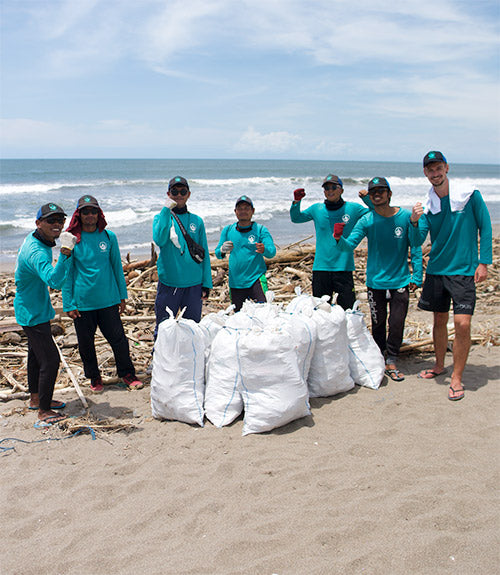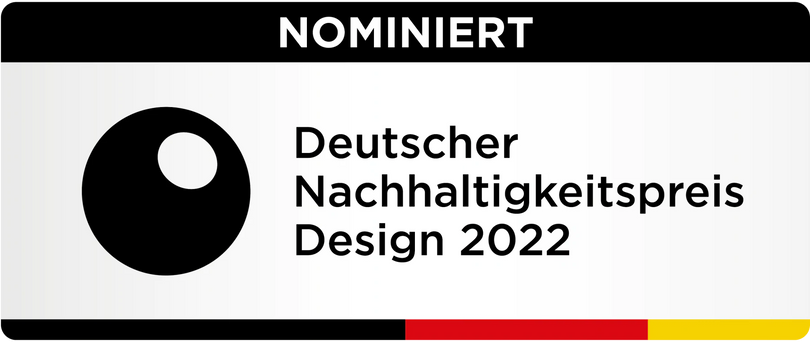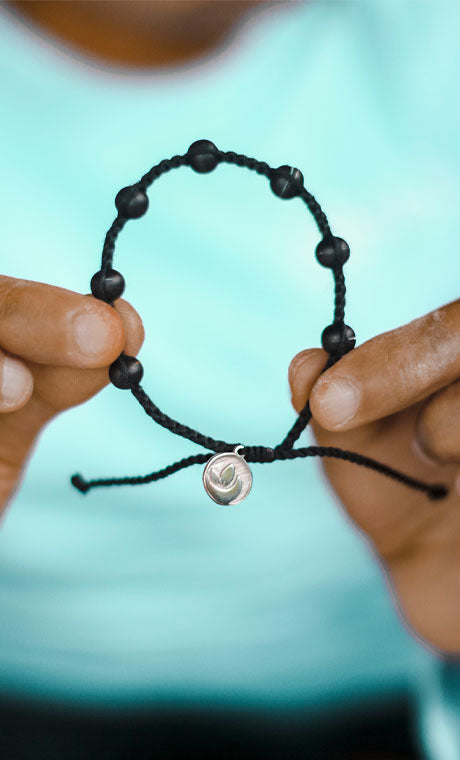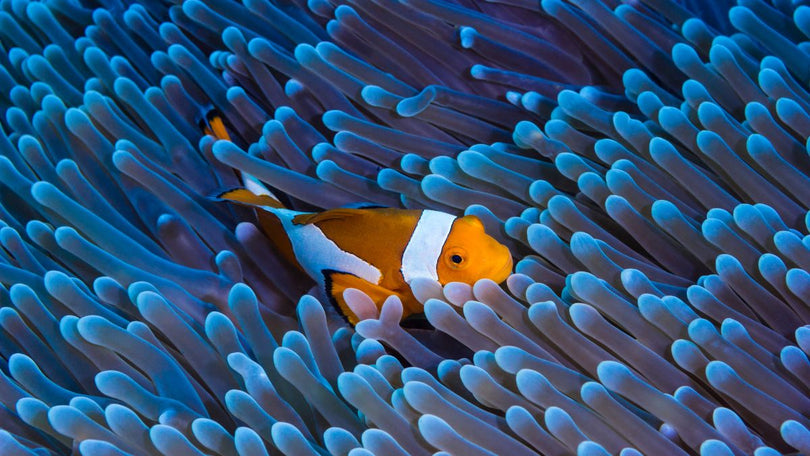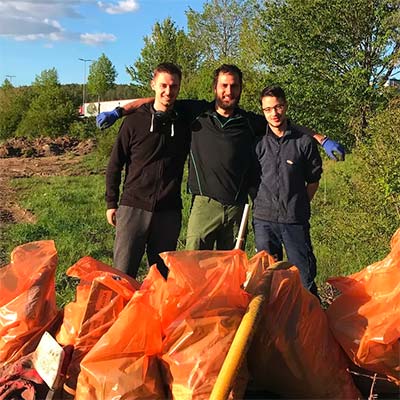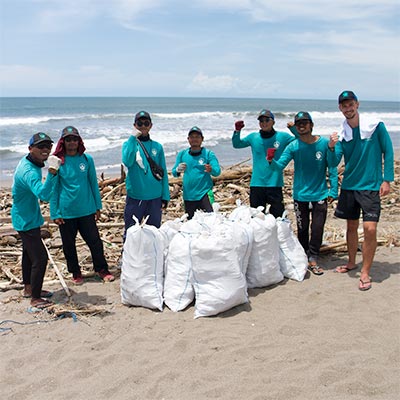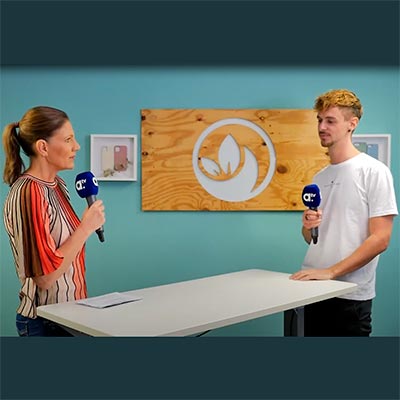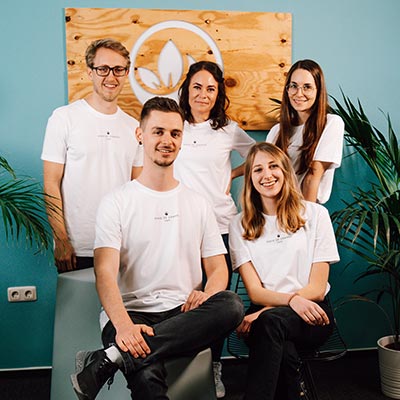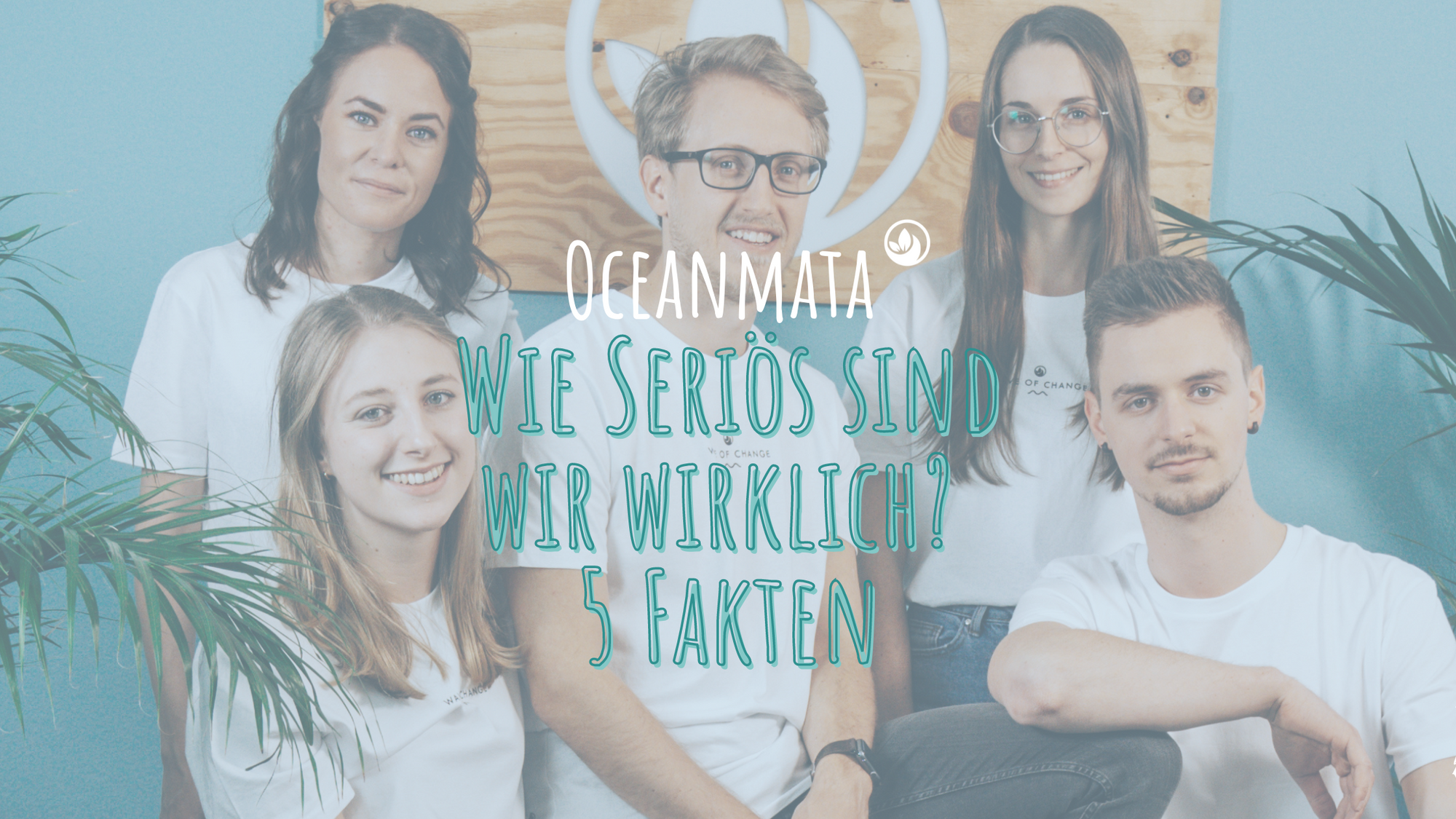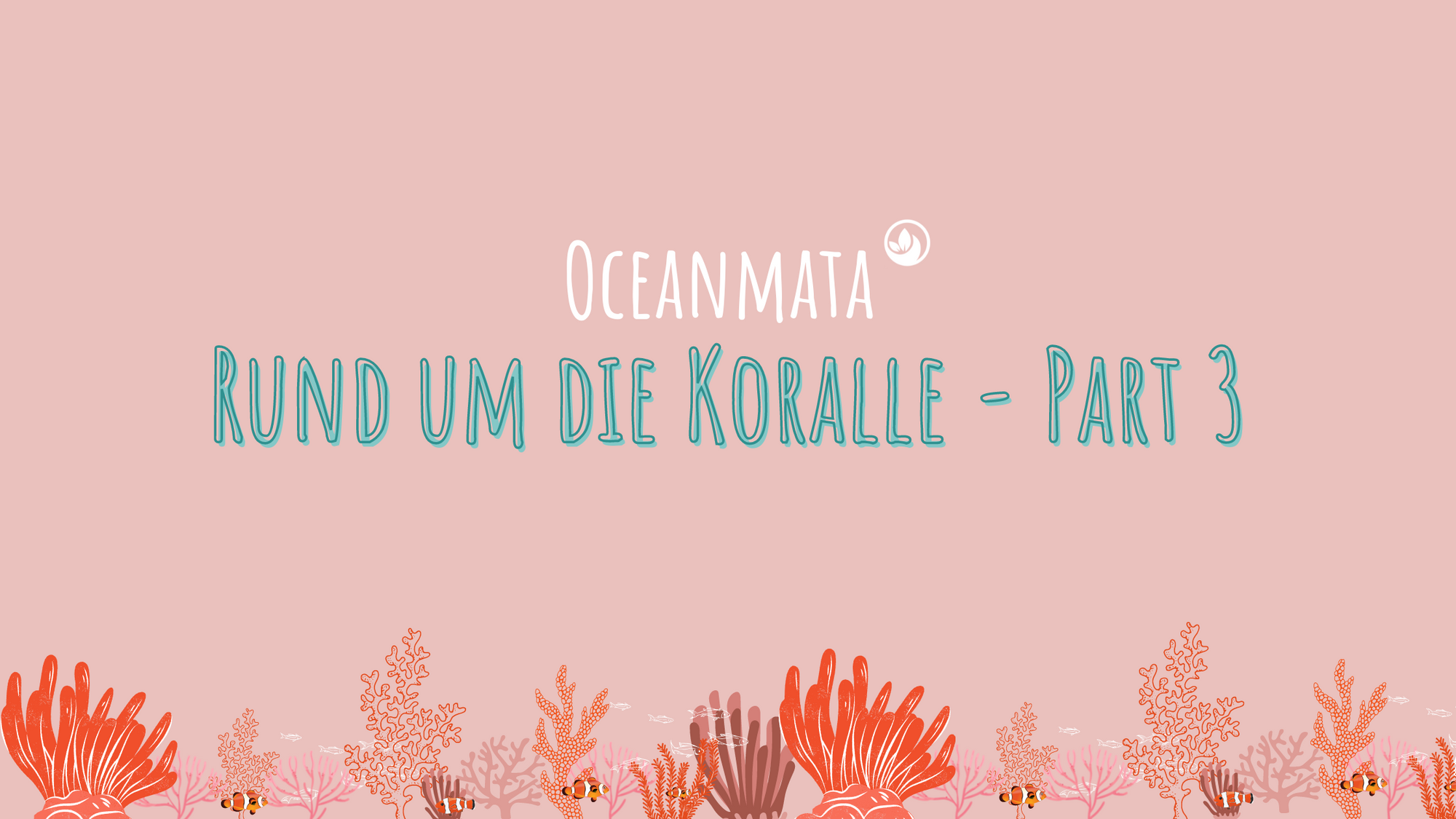Our Coral Week is over and the Coral Project in full swing. Of course, we are in constant contact with our partner from EcosystemImpact to keep you up to date and provide insights into the organization's work. So you know exactly what happens with the donations and why the project is so important.
There is always something for us to learn and we are delighted to have such a great organization at our side, which, thanks to your donation and your decision to do something for the corals, is now important project again . Until now, the project had been financial difficulties paused.
We won't keep you in suspense any longer. Enjoy the interview with Oceanmata and some of the EcosystemImpact team!

Oceanmata : What is your passion for the Fitri coral project?
Fitri: Everything! Especially education.
Oceanmata: What do you think is the biggest threat to corals?
Fitri: Humans, and the excessive use of plastic. Bomb fishing is also a problem. Here in Simeulue, for example, the corals are still reasonably healthy, as we can check them every day.
But there are still a lot of people who, for example, use bombs and nets to catch fish in the planned protected area, which destroys the coral, which is pretty bad.
Oceanmata: Have you also seen the documentary Seaspiracy?
Fitri: Yes, that made me cry.
Oceanmata: What do you think has the greatest impact on coral conservation? Planting, education, etc.?
Fitri: The most important thing is educating the people here. We're on a small island where not many people care about the environment. For me, the first important thing is education. After that, we can plant the corals. That's an important first step.
Oceanmata: Do you only teach the fishermen? Or do you also offer lessons for the younger ones, the children? Or both?
Jane: Yes. Currently, it's mainly the fishermen, as they're the ones who shape the landscape. But of course, we have two components, as the younger generation also needs to be informed to make a lasting difference in the future.
The second step involves establishing a local marine conservation management system. This will take place in parallel with the educational program.
We are very excited about the long-term management of these island areas, which is only possible through your cooperation.
Oceanmata: What do you think about the project? What are your goals for June, for example, or further ahead, December? What are your goals for the next month?
Jane: This is a brand-new project. We had a very successful coral planting pilot program last year, which involved ecotourism activities. Five people were trained and completed this program last year, or were actively involved in it. Everything was going very well until COVID-19 hit.
We now need new staff and rangers for our fledgling project, which we are currently looking for to complete the team. Until that happens, we can't proceed; it will take until June. We don't want to plant any new corals in the ground until we know they're safe!
Also because it's a remote location and not one we keep an eye on all the time. One important thing we need to talk about in this interview is that it will take a little longer until we have coral on the reef here.

Oceanmata: What do you think is the biggest impact, the biggest goal you can achieve with the project?
Jane: Preserving the existing reef is the priority, as there is a lot of bomb fishing and potassium cyanide poisoning. We would have the greatest impact if the coral reef restoration program were also recognized by the government.
It's sometimes difficult to convey that this is a multi-year, relatively complex project. But it's the only way we know these corals will grow long-term. For us, that's the most important thing, more important than planting 1,000 corals and not knowing whether they'll survive the next year.
We're using replanting as an educational tool to engage people and restore the reef, but we're doing it in a way that's truly focused on integrating it into all ranger patrols. We also want to work with fishermen, the Navy, and the Fisheries Commission.
So we're building this whole cooperative, integrative management system. The people conducting the patrols will be monitoring the areas in the future and demonstrating that the fishermen can't come and then engage in activities that are harmful to the reef (like fishing with bombs or poison) and overfishing.
In this way, they will protect the entire landscape and ecosystems of the area (including birds and turtles), especially the highly endangered coral reefs, which are among the critical ecosystems.
Such a program, which already exists in other areas, requires a total of about 12 active rangers, who will be part of a team of 6 rangers, who will rotate patrols around the islands. So, this is our big goal, and we are so happy and excited to be working with Oceanmata to implement this project and raise awareness about corals.
.
Oceanmata: Do you have any experience with planting around 100 corals? How many are still alive after one or two years? Is the only problem bombing or also climate change, such as rising ocean temperatures?
Tom: There are many issues at stake. Interestingly, this area was also hit quite hard by a tsunami in 2004, which caused the seabed to rise by as much as 5 meters in some places. This pushed many corals out of their comfort zone, which is why there are unfortunately many dead corals in this area. There are some places that are less affected than others, but as we mentioned, we already conducted a pilot program last year that worked.
There are still some that have grown very well, but not all of them. We installed grids on which the corals could grow. Unfortunately, some of these metal grids have been ripped out and stolen from the seabed for financial reasons, because even if they're not worth much, people can still make money from them.
That's very sad, because the amount of money you can make from this metal structure is only a tiny amount. But that's enough for someone to take it. So we really need to educate the people in the area and show them what we're doing and that we're doing it to protect their livelihoods. Because we want the corals to grow, we need to tell them: Please don't steal them and help us protect your environment!
We also like to show people the progress of growth, what might happen in a year or two, so they can see what we can achieve together.
In 5 years a reef can be huge!
Jane: As a local, Fitri can also convey the message to other locals on a different level: how important healthy reefs are for fishermen and the fish population, because the fish need the corals as a breeding ground, for example. It's important to talk about the benefits for the fishermen so they understand what impact the growing fish population, which also results from coral protection, will have on the future of their children and grandchildren.
Fitri : The people of Simeulue love fish and fishing very much. I think it's a bit of a challenge for us because people here eat fish every day. We need to educate them so they understand that corals are important for the fish. Everything is interconnected.

Oceanmata: So education is the most important point?
Jane : Education and a legal framework for management where you can actually protect and have the rights and authority to protect these areas and enforce the regulations. So, a big part of our work is working with the government and local authorities to ensure we have the license to do this conservation work and conduct the conservation patrols and the education program.
Tom: The other side will be the operational implementation of the project, such as assembling the team that will carry out these patrols and carry out the replanting and placement of the corals.
Oceanmata: So you also protect the metal structures with the new corals that would otherwise be stolen?
Jane: Exactly. We don't want to install these nets until we've really got the ranger team up and running. The timeframe from now on: We have a really big island-wide expedition coming up in June, so we'll assemble the team now and then make a first trip to the future protected area as soon as possible. We don't want to put the new corals on the seafloor until we know a team is patrolling.
We hope we could your knowledge about corals and expand on EcosystemImpact's work with the interview excerpt.
Next week there will be an article with updates on our ongoing projects , subscribe to the newsletter now to be informed as soon as our new blog article is online!



